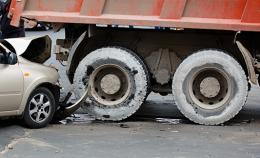The WCB is experiencing higher than normal call and email volumes. Thank you for your patience. For the quickest support, employers can:
Your Employer’s Payroll Statement (EPS) is due Feb. 28, 2026

What qualifies as a work injury?
A work injury is the result of any work-related event that causes a need for medical treatment and/or time away from work. The Saskatchewan Workers’ Compensation Board (WCB) considers each work injury on an individual basis, but in most cases compensation would apply to injuries that occur while a worker is at work, on company premises or on company business. This includes an occupational disease caused by work.
Learn more about what the WCB will consider when determining if an injury is work-related:
- WCB policy, Arising Out of and In the Course of Employment (POL 16/2025)
- WCB procedure, Arising Out of and In the Course of Employment (PRO 16/2025)
If you are a worker, there are three things you must do immediately if you are injured at work.
If you are an employer who has had one or more workers injured at work, you are legally required to report the injuries.
Frequently asked questions
A: All full-time, part-time, temporary and seasonal workers are covered by the WCB from the time they start work, except for workers who are in occupations excluded under WCB regulations. If you aren’t sure whether you’re covered, check with your employer or with the WCB.
Most employers in most industries are covered from the time they start business and register to pay premiums to the WCB. There are a few industries and occupations that aren’t covered. These are listed in The Workers’ Compensation Act, 2013 and in The Workers’ Compensation Miscellaneous Regulations.
If you work in an industry that doesn’t have to be covered by the WCB, you can apply on your own for optional personal coverage. You must tell your employer and your union that you’ve applied for optional WCB coverage. Your employer can also apply for optional personal coverage. The WCB will look at these applications and let you know if they’ve been accepted.
A: No. You are covered regardless of your age. If you suffer a work injury at age 63 or older, you may be entitled to most benefits, although wage-loss benefits are limited to a maximum of two years if you are unable to earn all or part of your earnings because of your injury.
A: In most cases, it does not matter what caused your work injury. However, there are some exceptions. Each claim is adjudicated on a case-by-case basis.
A: If your employer is covered by the WCB (and most employers are), you can’t sue them or any other worker or employer covered by the WCB. By giving up the right to sue, workers get any benefits that they’re entitled to receive. Learn more about the Meredith Principles, upon which all workers’ compensation systems are based in Canada.
A: When a worker dies at work or is found dead in the workplace in an area where the worker had a right to be in the course of his or her employment, it is presumed that the death was work-related unless it is proven otherwise. The deceased worker’s family may be entitled to burial expenses and benefits for a limited time for accepted claims. Learn more about work-related deaths and support for families.
A: If you are injured at work, there are three things you need to do immediately: Seek medical attention, report your injury to your employer and report your injury to the WCB using a Worker’s Initial Report of Injury (W1) online form. Learn about the online services available and how they can help you with the claims process.
Child page group heading
Types of work injuries

Motor vehicle collisions/SGI
If you are injured in a work-related motor vehicle collision, you may be eligible for WCB benefits. Read about the WCB’s agreement with SGI, what to do if your vehicle is registered to your employer and what to do if your vehicle is covered by SGI or other government insurance.
Learn more
Occupational diseases
If you are diagnosed with an occupational disease caused by work, including firefighter cancer, you may qualify for WCB benefits and assistance. Find out what the WCB defines as an occupational disease, what diseases are covered and the minimum exposure period required for each.
Learn more
Psychological injuries
All covered workers are eligible for compensation and medical treatment if they suffer a psychological injury from being directly exposed to a traumatic event(s) in the course of their work. Read what is considered a traumatic event or a series of traumatic events and how to apply for compensation.
Learn more
